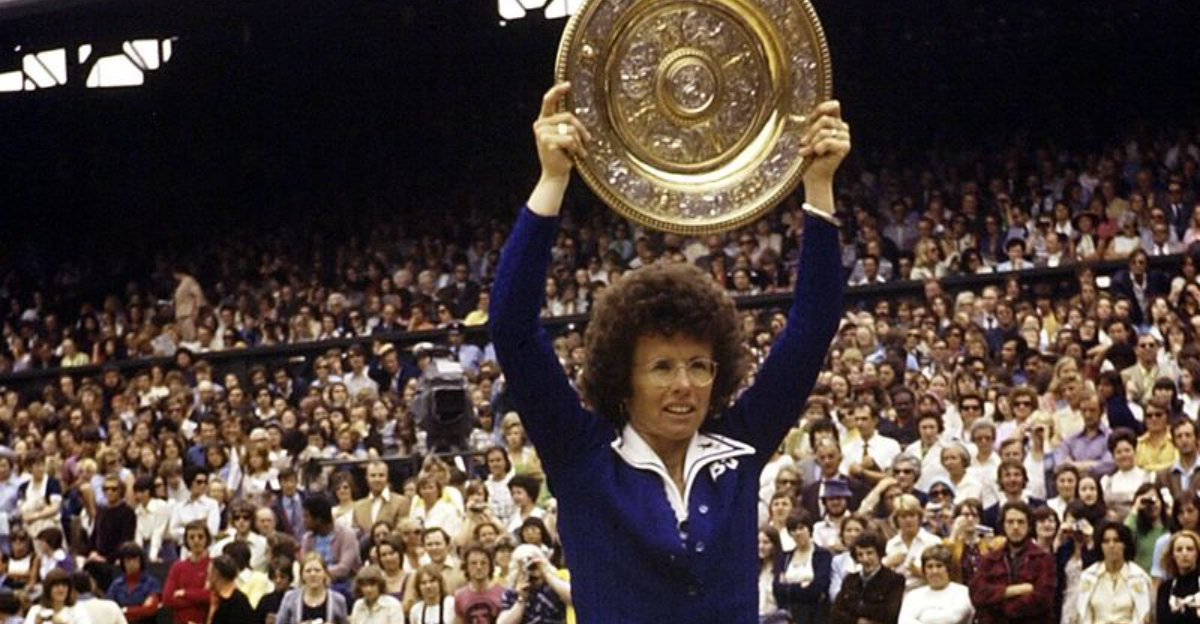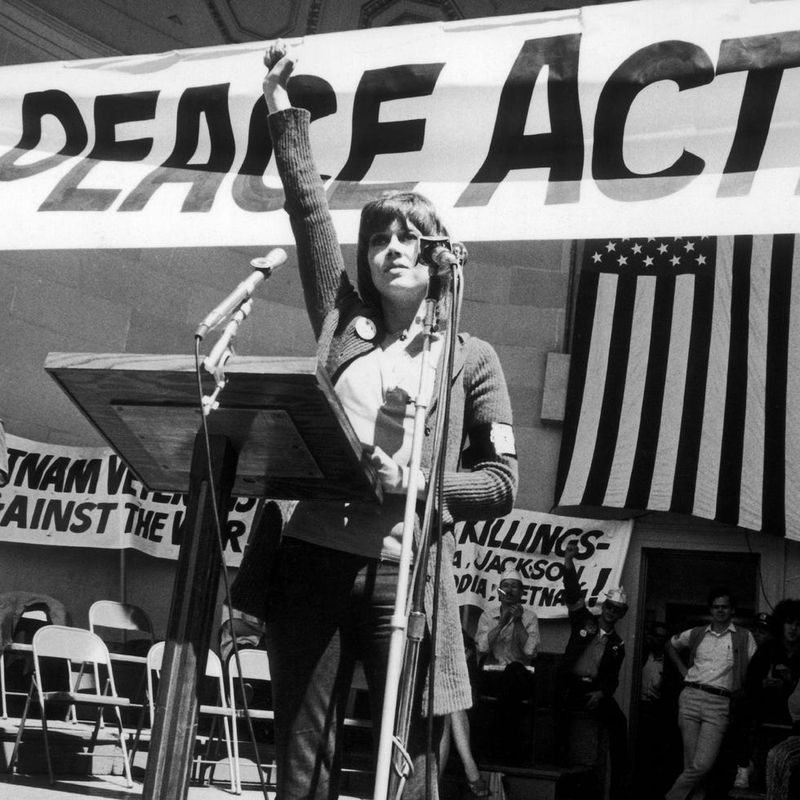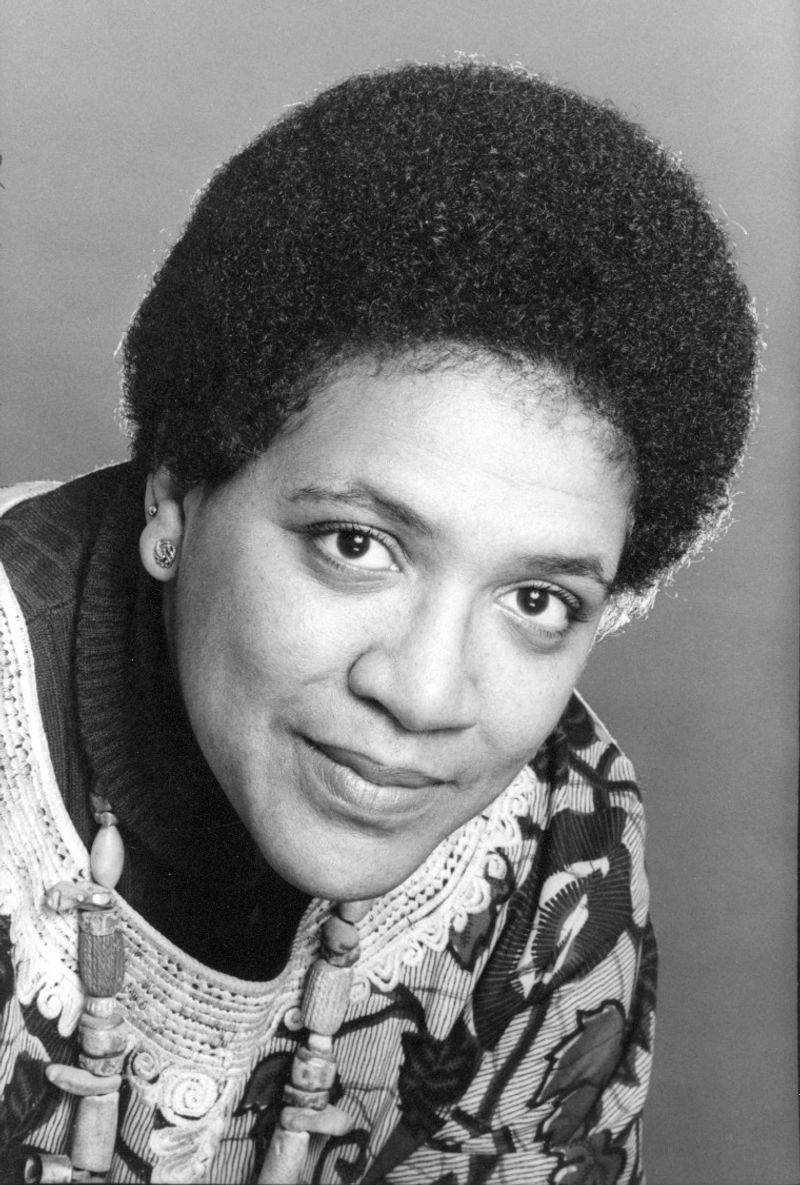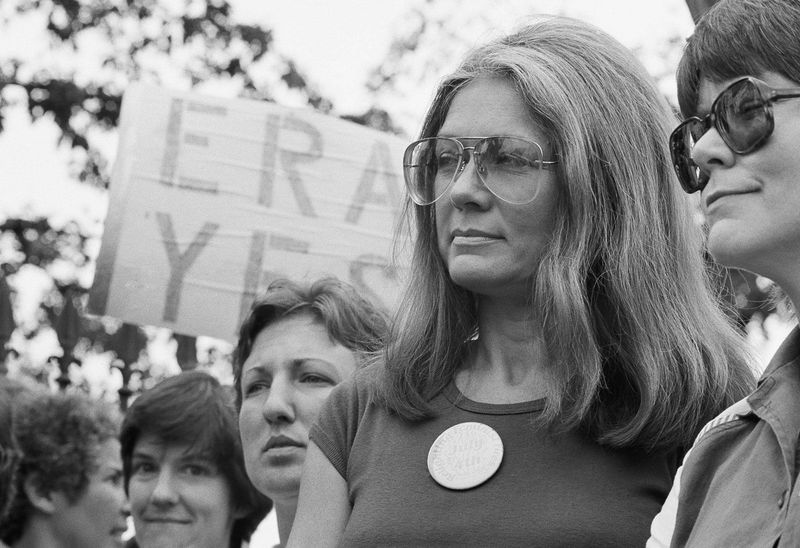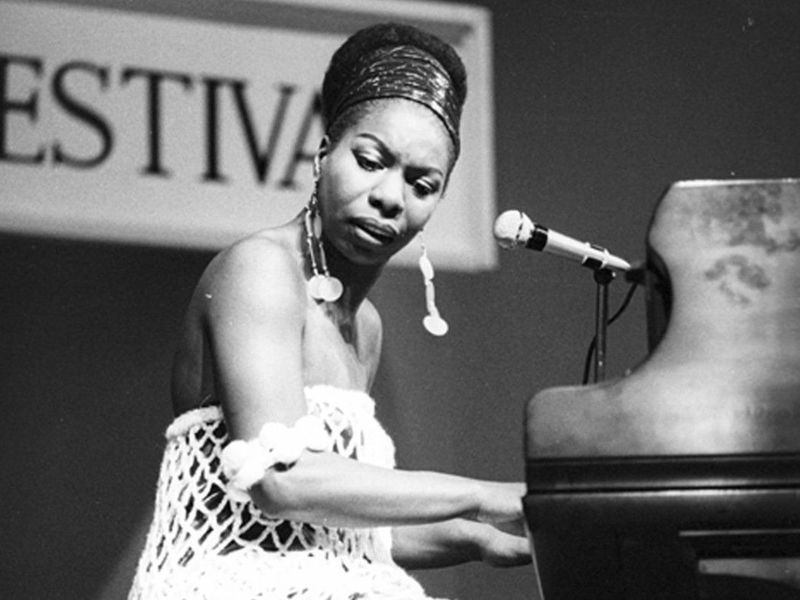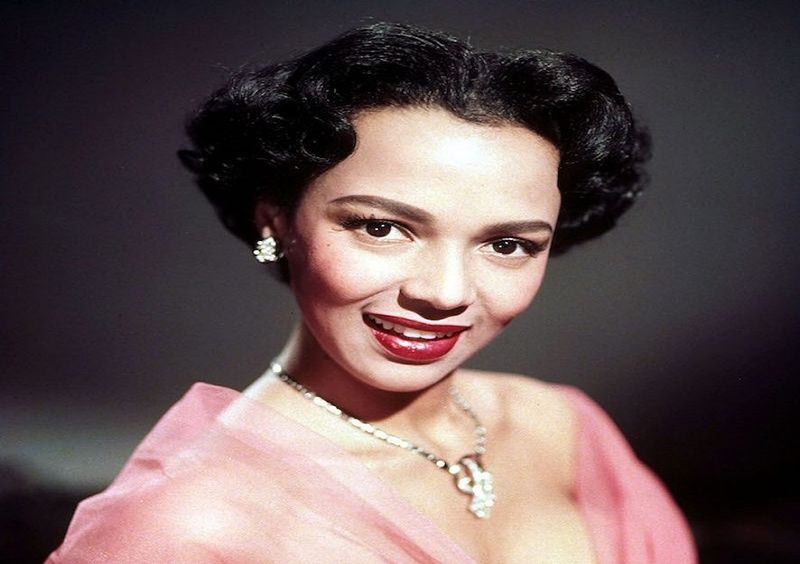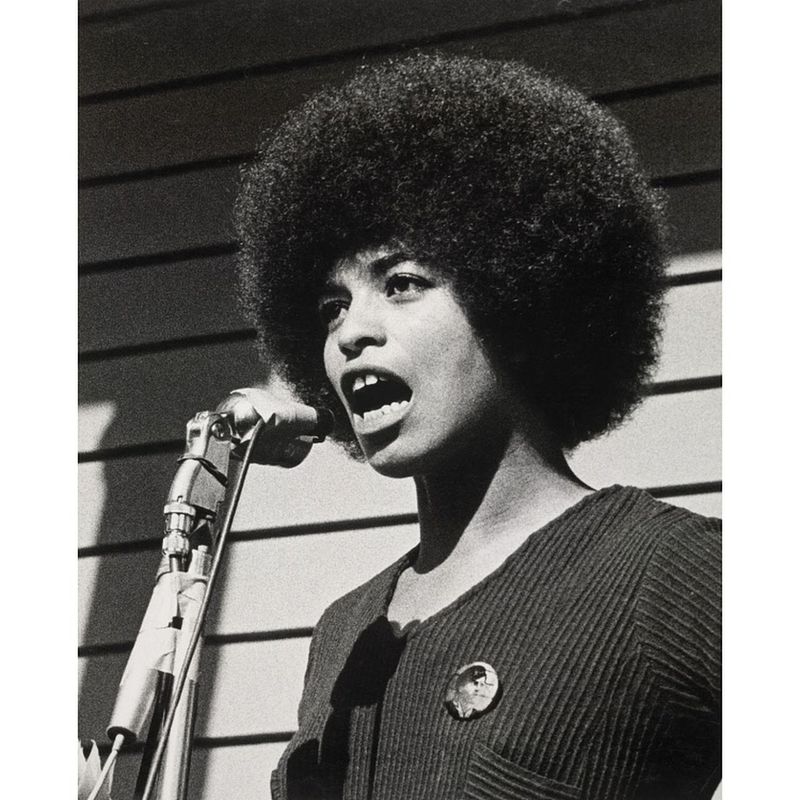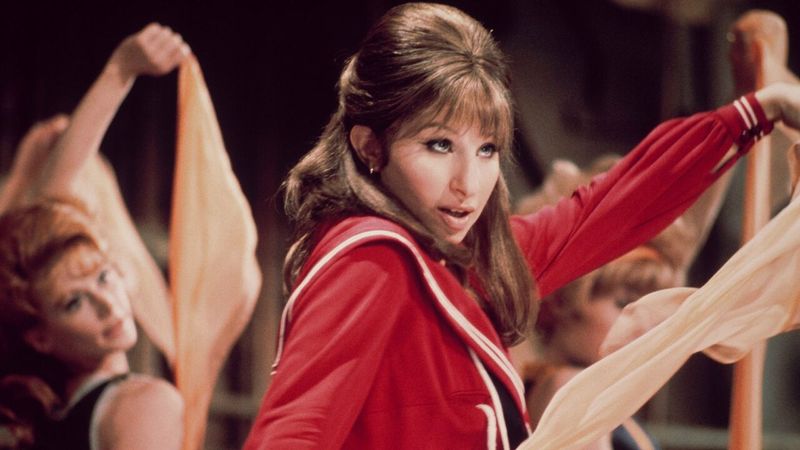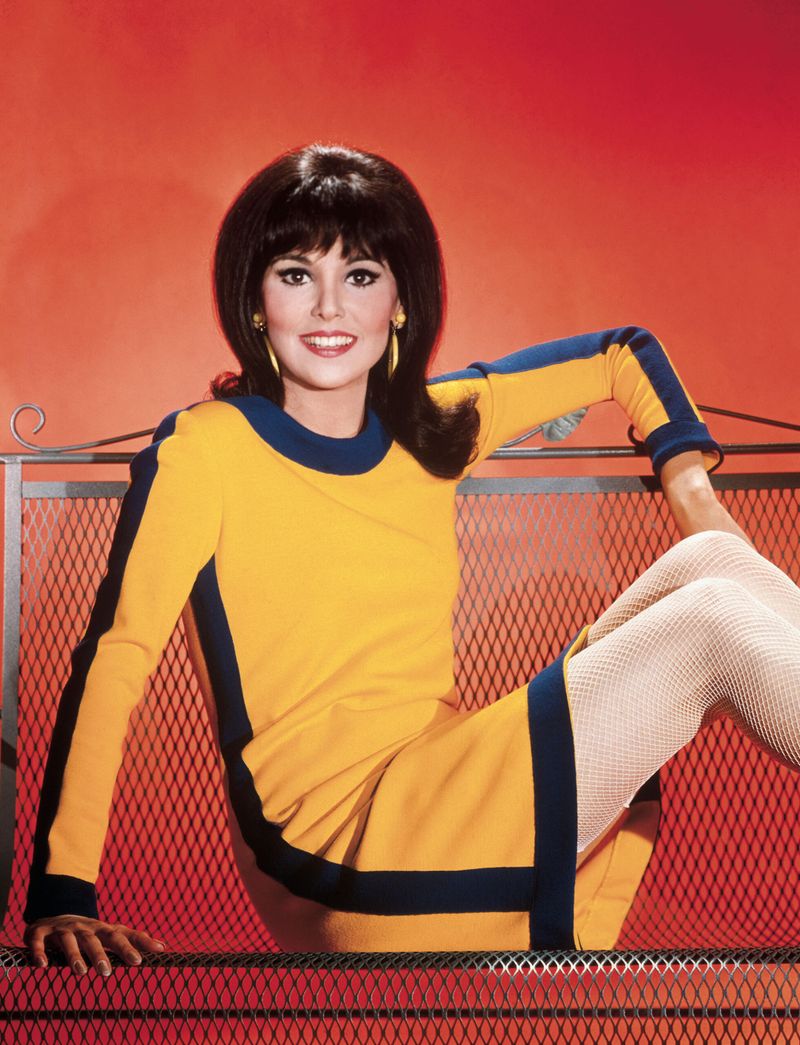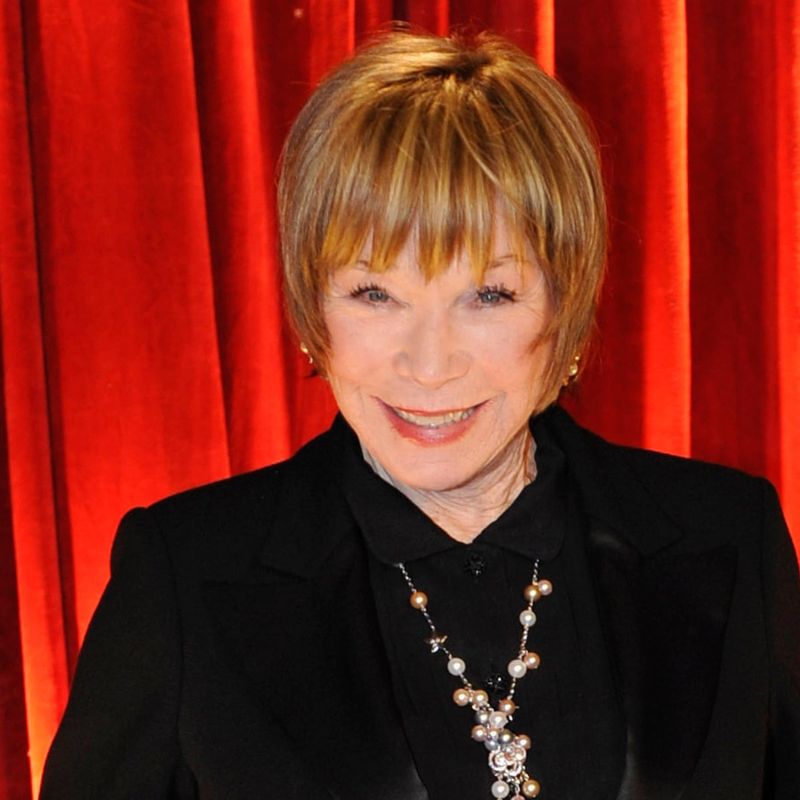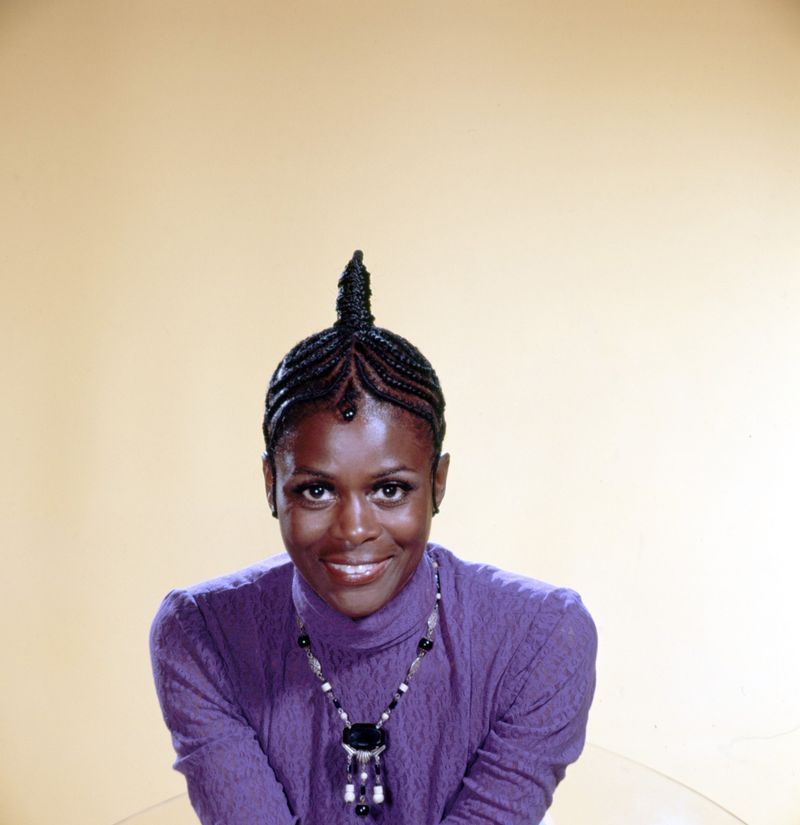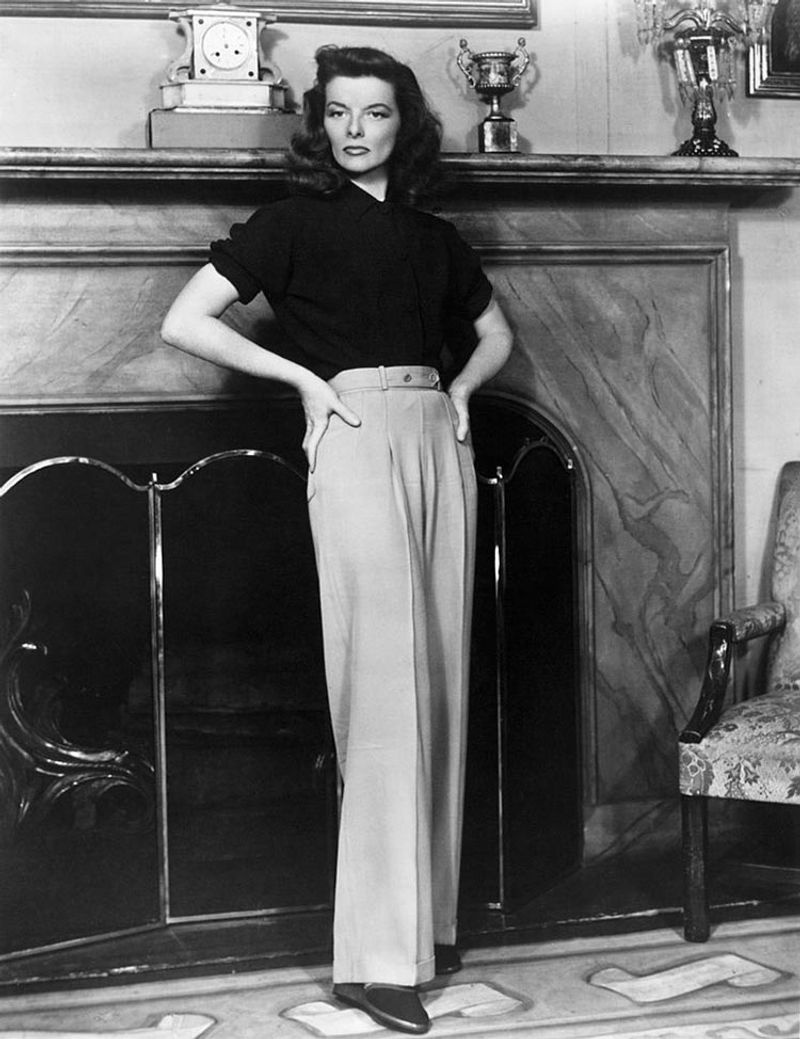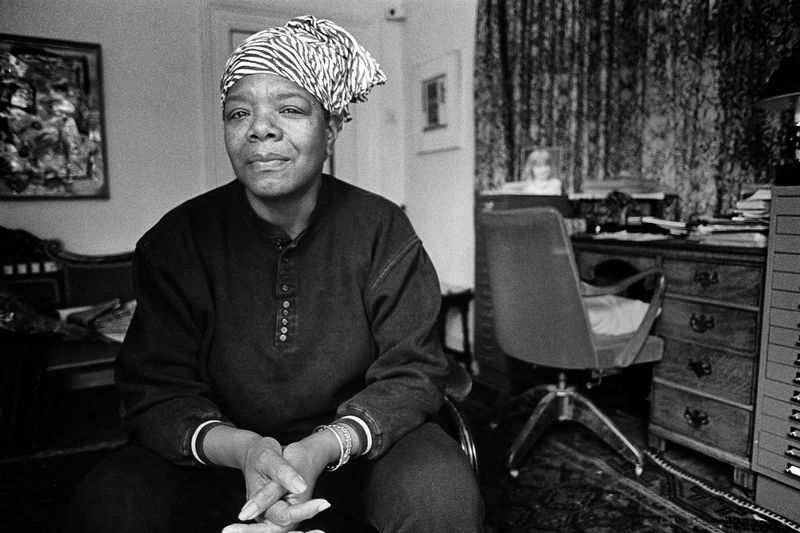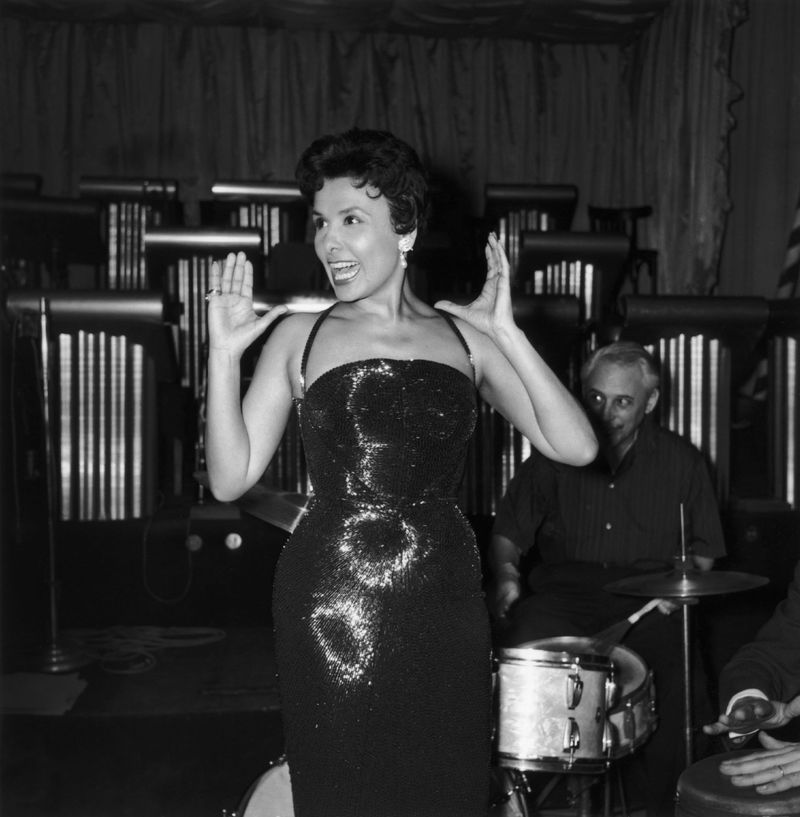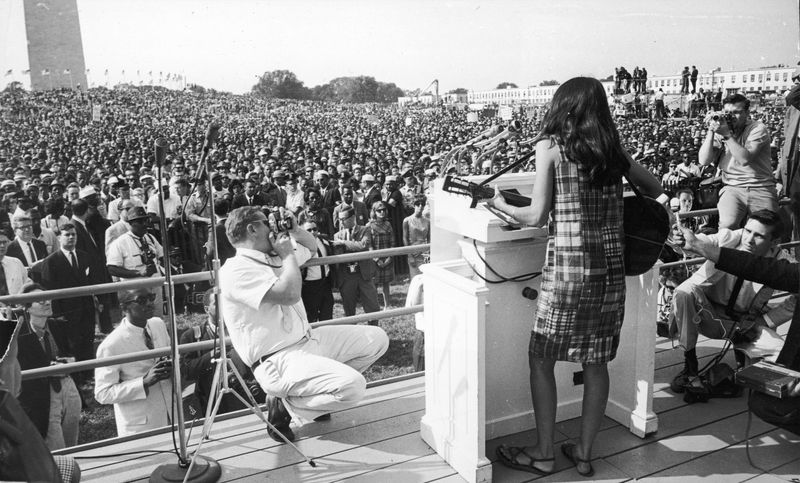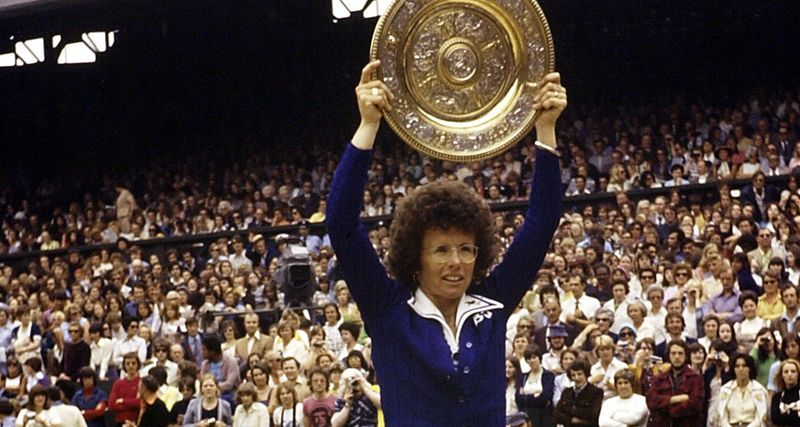The 1960s wasn’t just about rock ‘n’ roll and moon landings – it was a decade when women stepped boldly into the spotlight as agents of change.
From civil rights to gender equality, these remarkable women challenged the status quo and rewrote the rules. Their courage sparked movements that continue to shape our world today, proving that one voice can indeed start a revolution.
1. Jane Fonda: Hollywood Rebel With Many Causes
Born into Hollywood royalty, Jane Fonda shocked America when she transformed from movie star to outspoken activist. Her fierce opposition to the Vietnam War earned her both devoted followers and harsh critics. Nicknamed “Hanoi Jane” after her controversial 1972 visit to North Vietnam, Fonda never backed down from speaking truth to power. Her activism extended beyond war protests to environmental issues, women’s rights, and economic inequality. Even in her 80s, Fonda continues her fight, getting arrested multiple times during climate change demonstrations. Her evolution from privileged actress to committed activist represents the journey many Americans took during this transformative decade.
2. Audre Lorde: The Warrior Poet Who Refused Silence
“Your silence will not protect you,” declared Audre Lorde, the self-described “Black, lesbian, mother, warrior, poet” whose words shattered conventional thinking. Her groundbreaking essays and poems confronted racism, sexism, and homophobia when speaking about such intersections was revolutionary. Lorde’s concept of the “erotic as power” challenged women to reclaim their inner strength and authenticity. While teaching at colleges across New York, she mentored countless young feminists and activists. Her cancer journals later broke taboos around illness and mortality. Decades before terms like “intersectionality” entered mainstream vocabulary, Lorde lived these principles, refusing to fragment her identity for anyone’s comfort.
3. Gloria Steinem: The Journalist Who Infiltrated Playboy
With her iconic aviator glasses and streaked hair, Gloria Steinem became feminism’s most recognizable face after going undercover as a Playboy Bunny in 1963. Her exposé revealed the degrading working conditions women endured, launching her career as a fearless investigative journalist. Co-founding Ms. magazine in 1971, Steinem created a platform where women could speak freely about taboo subjects like domestic violence and reproductive rights. Her accessible writing style made complex feminist ideas understandable to everyday Americans. “A woman without a man is like a fish without a bicycle,” she famously quipped, challenging assumptions about women’s dependency on men. Steinem’s ability to balance intellectual rigor with mainstream appeal helped feminism reach beyond academic circles.
4. Nina Simone: The High Priestess of Soul Who Fought for Justice
Classically trained pianist Nina Simone transformed into a fierce civil rights warrior after the 1963 Birmingham church bombing that killed four young girls. Her haunting protest song “Mississippi Goddam” marked her evolution from entertainer to activist. Simone’s hypnotic voice carried messages of Black pride and resistance through songs like “Young, Gifted and Black” and “Four Women.” Unlike many celebrities who softened their stance for commercial appeal, Simone remained unapologetically radical throughout her career. “An artist’s duty is to reflect the times,” she insisted, even when it cost her record deals and concert bookings. Her musical genius combined with unflinching political commitment created a legacy that transcends entertainment and stands as a testament to artistic courage.
5. Dorothy Dandridge: The Barrier-Breaking Star Who Paved the Way
Dorothy Dandridge shattered Hollywood’s color barrier when she became the first Black woman nominated for a Best Actress Oscar. Her groundbreaking role in “Carmen Jones” forced the industry to confront its prejudices, though she fought an uphill battle against typecasting throughout her career. Refusing roles that degraded Black women, Dandridge sacrificed financial security for dignity. Her tragic death in 1965 at just 42 years old cut short a career that had already transformed Hollywood’s racial landscape. Beyond her remarkable talent, Dandridge’s courage in confronting studio executives about discriminatory practices helped create opportunities for future generations of Black actresses. Her brief but brilliant career represents both the possibilities and painful limitations Black performers faced in mid-century America.
6. Angela Davis: Revolutionary Scholar With an Unforgettable Afro
Angela Davis’s iconic afro became a symbol of Black resistance after she was placed on the FBI’s Ten Most Wanted list in 1970. The brilliant philosophy professor found herself at the center of a political firestorm when weapons used in a courthouse shooting were registered in her name. Her subsequent imprisonment sparked a global “Free Angela” movement. Acquitted of all charges in 1972, Davis emerged from prison more committed than ever to prison abolition and radical political change. A member of both the Communist Party and the Black Panthers, Davis challenged America to confront its history of racism and economic exploitation. Her fearless intellectual critique of capitalism, racism, and the prison-industrial complex continues to influence activists and scholars worldwide.
7. Barbra Streisand: The Brooklyn Girl Who Refused to Change Her Nose
“Hello, gorgeous!” Barbra Streisand famously quipped to her Oscar in 1969, but her journey to that moment was anything but smooth. Told repeatedly her unconventional looks would prevent stardom, Streisand refused nose jobs and makeovers, insisting her talent should speak for itself. Her stubborn authenticity paid off when she became the first woman to win acclaim as actor, director, producer, and composer. Beyond entertainment, Streisand championed progressive causes long before celebrity activism was common. Her Streisand Foundation, established in 1966, funded early environmental initiatives, women’s health research, and civil liberties. By controlling her career and image when women were expected to be compliant, Streisand demonstrated that female autonomy wasn’t just a political concept but a practical possibility.
8. Marlo Thomas: The TV Pioneer Who Wouldn’t Settle Down
When “That Girl” debuted in 1966, Marlo Thomas did something revolutionary on television – she portrayed a single woman pursuing a career rather than a husband. As aspiring actress Ann Marie, Thomas showed viewers a woman whose identity wasn’t defined by her relationship to men. Behind the scenes, Thomas fought network executives who wanted her character to marry by the series end. She insisted Ann remain single, making a powerful statement about women’s autonomy. Thomas later created “Free to Be… You and Me,” a groundbreaking children’s project challenging gender stereotypes. Through catchy songs and stories, she taught a generation of children that boys could cry, girls could be doctors, and everyone deserved to be themselves without gender limitations.
9. Shirley MacLaine: The Spiritual Seeker Who Questioned Everything
While Hollywood stars carefully managed their public images, Shirley MacLaine boldly shared her explorations of reincarnation, meditation, and metaphysics. Her spiritual openness in the conformist 1960s demonstrated remarkable courage, risking ridicule from critics and fans alike. MacLaine’s activism extended beyond the mystical to the practical. She marched for civil rights, campaigned for Democratic candidates, and advocated for women’s equality in Hollywood, demanding better roles and equal pay. On film sets, MacLaine fought for creative control when female actors were expected to be decorative and compliant. Her autobiography “Don’t Fall Off the Mountain” revealed her struggles in a male-dominated industry. By living authentically in both her spiritual and professional life, MacLaine showed women they could define success on their own terms.
10. Cicely Tyson: The Dignified Force Who Redefined Black Beauty
“I refused to take parts that demeaned Black women,” Cicely Tyson once explained, a radical stance that left her unemployed for years. When roles finally came, they revolutionized how Black women were portrayed on screen. Her natural hairstyles in the 1960s celebrated African beauty standards when straight hair was the industry norm. The cornrow hairstyle she wore in “Sounder” (1972) inspired countless Black women to embrace their natural hair. Tyson’s portrayal of dignified, complex characters in films like “The Autobiography of Miss Jane Pittman” countered stereotypical roles typically offered to Black actresses. By rejecting lucrative but demeaning parts, Tyson demonstrated that integrity could be more valuable than fame. Her principled career choices expanded possibilities for future generations of Black performers.
11. Katharine Hepburn: The Pants-Wearing Maverick Who Aged Defiantly
Katharine Hepburn wore trousers when women could be arrested for doing so, setting the stage for her lifelong defiance of gender norms. Already established before the 1960s, Hepburn reached new heights during this decade, winning Oscars for roles that celebrated mature, independent women. Her character in “Guess Who’s Coming to Dinner” (1967) confronted America’s racial prejudices, while her portrayal of Eleanor of Aquitaine in “The Lion in Winter” showcased female power and intellect. Off-screen, Hepburn lived according to her famous motto: “If you obey all the rules, you miss all the fun.” Her unconventional relationship with Spencer Tracy demonstrated that women could define partnership on their own terms. By aging naturally and remaining professionally active into her 80s, Hepburn challenged Hollywood’s disposable view of older women.
12. Maya Angelou: The Silenced Child Who Found Her Mighty Voice
After experiencing childhood trauma that left her mute for nearly five years, Maya Angelou transformed her pain into some of America’s most powerful literature. Her work during the 1960s as a civil rights coordinator for Martin Luther King Jr. and the Southern Christian Leadership Conference shaped her understanding of justice and human dignity. Angelou’s close friendship with Malcolm X expanded her global perspective on Black liberation. As one of the first Black women to write, produce, and narrate a television special, she broke barriers in media representation. Her poem “Still I Rise” became an anthem of resilience for marginalized communities worldwide. Through her multilayered career as dancer, singer, writer, and activist, Angelou demonstrated the renaissance capabilities of Black women when given opportunity and platform.
13. Lena Horne: The Glamorous Star Who Refused Segregated Audiences
Lena Horne’s contract with MGM contained a groundbreaking clause: she would never play a maid. This revolutionary stance in the 1940s set the foundation for her civil rights work in the 1960s, when she used her celebrity to demand equal treatment for Black Americans. Blacklisted during the McCarthy era for her progressive politics, Horne reemerged in the 1960s as a powerful voice for justice. She participated in the 1963 March on Washington and performed at civil rights fundraisers despite threats to her safety. When entertaining troops during World War II, Horne famously walked out when German POWs were seated ahead of Black American soldiers. Her refusal to perform in segregated venues cost her lucrative opportunities but established her as an artist who valued principles above profit.
14. Joan Baez: The Folk Singer With a Conscience and a Crystalline Voice
Armed with nothing but an acoustic guitar and a voice described as “achingly pure,” Joan Baez became the musical conscience of the 1960s. Her performance of “We Shall Overcome” at the 1963 March on Washington cemented her role in the civil rights movement. Baez’s courage extended beyond symbolic gestures – she withheld 60% of her income tax to protest military spending and was arrested multiple times for civil disobedience. Her relationship with Bob Dylan brought her commercial attention, but her commitment to nonviolence and social justice defined her legacy. Unlike many celebrities who embraced causes when convenient, Baez traveled to Hanoi during American bombing raids and to Sarajevo during the Bosnian War. Her lifelong consistency in opposing violence, regardless of which political party initiated it, exemplifies moral courage over partisan loyalty.
15. Billie Jean King: The Tennis Champion Who Battled for Equality
When Billie Jean King discovered male tennis players were earning prize money ten times higher than women for the same tournaments, she didn’t just complain – she organized. Her formation of the Women’s Tennis Association in 1968 transformed professional sports for women forever. King threatened to boycott the U.S. Open unless prize money was equalized, a bold move that risked her career but secured equal pay for future generations. Her famous “Battle of the Sexes” victory over Bobby Riggs in 1973 drew 90 million viewers and became a cultural touchstone for gender equality. As one of the first professional athletes to come out as gay, King lost endorsements but gained authenticity. Her pioneering advocacy created a blueprint for athlete activism that continues today in movements for racial justice and LGBTQ+ rights.
